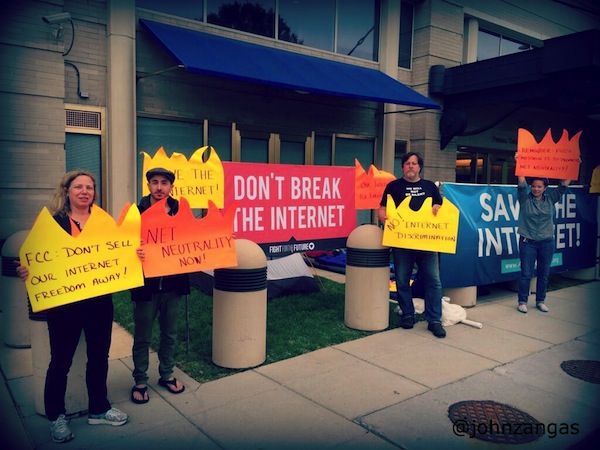What Next In The Campaign To Save The Internet?
The next four months are going to determine the future of the Internet. Will it remain free and open with equal access to all? There are powerful corporate interests that want to profit even more from the Internet at the expense of the public interest. But as a result of our work this week, we now have an opportunity to create the Internet we want. So, how do we change the political culture? What actions outside of the rulemaking process can we take to make the reality we want to see becomes an inevitable reality? How do we make it impossible for the FCC to ignore the will of the people on this essential First Amendment issue of the 21st Century?
We want your ideas. We know that the thinking of many are more powerful than the minds of a few. Not only do we want your suggestions, we encourage you to take autonomous action. We urge you to organize actions on your own, suggest actions and join actions.















